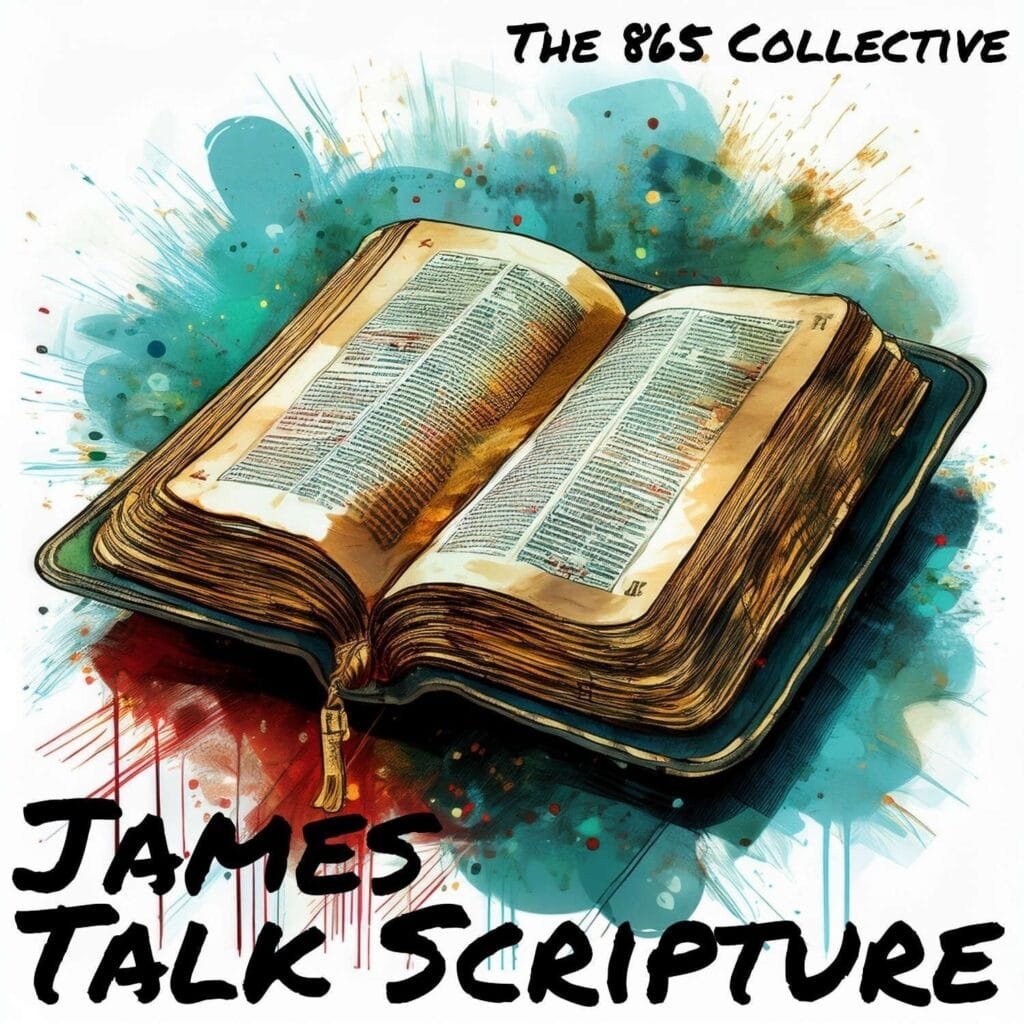We’ve all said things we regret. A harsh comment. A whispered criticism. A sarcastic jab that, in the moment, might’ve felt justified—maybe even satisfying. But as those words sink in, we realize they hurt more than they helped.
James, the half-brother of Jesus, understood the power of our words. And in his letter, he doesn’t hold back. He reminds us that our speech reveals our hearts—and that the way we speak to one another can either honor Christ or grieve Him deeply.
But before we dive into what James is saying, let’s clear up what he isn’t saying.
He’s not saying all judgment is wrong. Being judgmental isn’t the same as declaring God’s truth. Criticism isn’t the same as accountability. Scripture makes a clear distinction between slander and loving correction.
Correction—when it’s done with humility and love—is not only appropriate, it’s necessary. It restores a fellow believer, guards the community from sin, and protects the unity of the church. Later in his letter, James even talks about bringing back those who have wandered from the truth. That’s accountability. That’s love in action.
So if James isn’t condemning correction, what is he warning against?
The Danger of Destructive Speech
James continues his warning about the weight and power of our words. But he goes even deeper—showing us that it’s not just about what we say, but why we say it. The motives matter.
He’s calling out evil speech—slander, gossip, and criticism that doesn’t build up but tears down. Not the kind of feedback that helps someone grow, but the kind that flows from pride and self-righteousness. The kind that condemns rather than corrects. That ruins rather than restores.
James has already warned us about how dangerous the tongue can be—a small spark that sets an entire forest on fire. He’s addressed jealousy, selfish ambition, and quarrels rooted in worldly desires. And now he focuses in on the way we speak about one another.
When he says, “Do not speak evil against one another,” he’s not shutting down every hard conversation. He’s calling out the kind of speech that’s meant to wound, not heal.
Think about it:
- The gossip whispered behind someone’s back.
- The criticism designed to discredit, not correct.
- The passive-aggressive comment disguised as concern but intended to manipulate.
This kind of speech doesn’t just hurt people—it offends God.
Violating the Royal Law
Here’s why this matters so much: Evil speech violates the royal law—the command to “Love your neighbor as yourself” (James 2:8). But when we speak evil of others, we spread poison instead of love. We tear down instead of build up. We throw stones instead of showing grace.
And often, if we’re honest, it’s not just about someone else’s flaws—it’s about making ourselves look better. Pride disguises itself as righteous anger or concern. But as I often remind my kids: Calling someone ugly doesn’t make you beautiful. And declaring someone sinful doesn’t make you holy.
James may also be addressing another danger here: the tendency to add our own rules to God’s law. When we judge others by man-made standards—especially the ones we don’t personally struggle with—we’re not just playing judge; we’re trying to play God.
We elevate ourselves. We assume authority we were never meant to carry. And that kind of judgment, James warns, is dangerous.
Because here’s the truth: There’s a big difference between the clear truths of Scripture and the traditions, preferences, or interpretations we attach to them.
When we impose our standards of righteousness, we don’t just judge others—we dishonor God, as if His Word isn’t enough.
But James reminds us:
There is only one Lawgiver.
He doesn’t need us to rewrite the rules.
The Call to Something Better
At the end of the day, our words matter.
Speech that damages, discredits, or destroys—especially when it’s fueled by pride and self-righteousness—is sin. It violates God’s law, fractures relationships, and dishonors Christ.
But Jesus calls us to something better.
“By this all people will know that you are my disciples, if you have love for one another.”
—John 13:35
That means our words should heal, not harm. Restore, not ruin. Encourage, not destroy. That’s what should define us.
So let’s ask ourselves:
- Are my words bringing life or death?
- Do they reflect Christ’s love or my own pride?
- Am I using my voice to build up or tear down?
Because in the end, our words aren’t just words.
They reveal our hearts.
Let’s speak truth—but let it always be wrapped in love.
Let’s correct—but let it always restore.
Let’s call each other to holiness—not with condemnation, but with grace.
For His glory. For our good.
“Do not speak evil against one another, brothers. The one who speaks against a brother or judges his brother, speaks evil against the law and judges the law. But if you judge the law, you are not a doer of the law but a judge. There is only one lawgiver and judge, he who is able to save and to destroy. But who are you to judge your neighbor?” James 4:11-12
ESV Study Bible. (2010). Crossway Books.
From Talk Scripture: Words That Wound, Rules We Make | James 4:11-12
This material may be protected by copyright.

